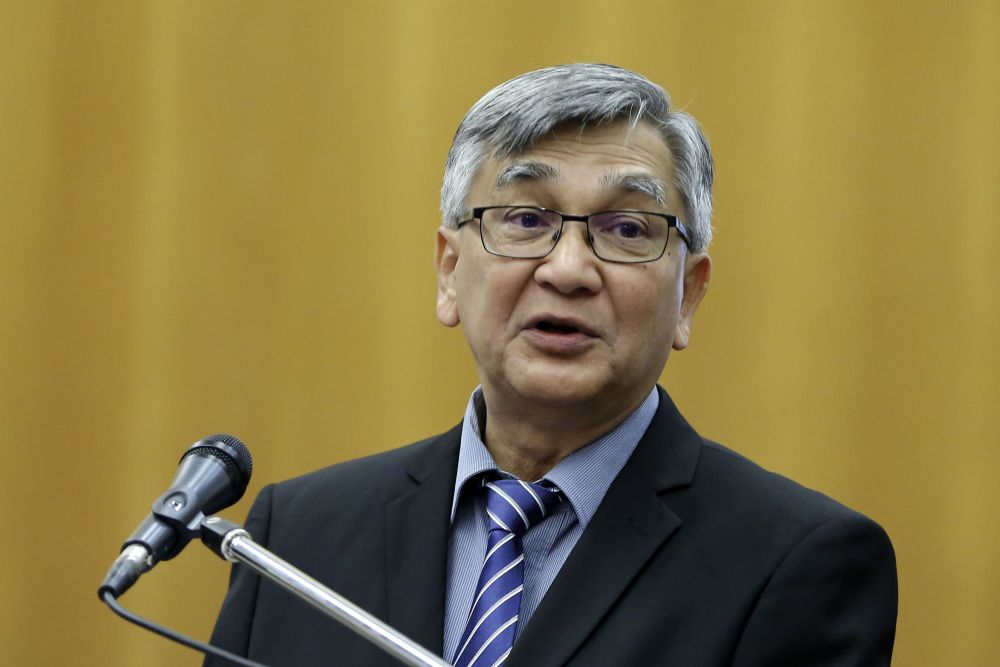KUALA LUMPUR, Feb 3 ― The Opposition leader whose job is to check and balance the government is effectively without a role as long as Parliament is suspended, according to former Dewan Rakyat Speaker Tan Sri Mohamad Ariff Md Yusof.
Ariff, a former judge who was appointed to the chair proceedings in the lower House of Parliament during the Pakatan Harapan (PH) administration and resigned when it collapsed last year, said the Opposition plays a role to rein in the powers of the executive arm of government in a parliamentary democracy.
“Having the leader of the Opposition speaking outside of Parliament resenting opposition MPs is not quite the same as being in Parliament,” he said in a webinar about the Emergency Ordinance 2021, constitutional supremacy and Parliament organised by the Institute for Political Reform and Democracy and aired over Facebook tonight.
Ariff also said that suspending parliamentary proceedings during an Emergency was unprecedented, and gave two past examples when the national lawmaking Houses continued to operate.
“In our history there has not been an instance where an Emergency suspended Parliament. Even in 1969 during the riots then in 1977. That’s how all those Acts were passed back then.
“Even recently there was a declaration during the by-elections in Batu Sapi and Gerik. So there's really no logic or reasoning to not allow Parliament to sit now,” he said.
To Ariff, MPs can perform all their normal duties and oversight functions in Parliament during an Emergency.
He added that Parliament is not about arguing about who’s right or wrong, getting proposed laws passed, or even tabling a confidence or no-confidence motion.
He also said any report that may emerge during the Emergency will have no one to vet it properly and no avenues to raise critical questions concerning the government’s decisions.
He called for Parliament to be allowed to convene without delay, and added that the laws allow the government to do so. He suggested that it needed only the will to advise the Agong to call for parliamentary sessions to start again.
“Committees need to meet and table reports. Now who are they tabling it too? That’s why for the good of the country and its image, the executive must take steps to summon Parliament.
“It does not matter what complications are arising. If we believe in the separation of powers and democracy we must do this. I do not know what is so special about this Emergency that it needs to be prorogued,” Ariff added.
A nationwide state of Emergency was proclaimed by the Yang di-Pertuan Agong on January 12 on grounds of the country’s economic crisis caused by the prolonged Covid-19 health crisis.
Prime Minister Tan Sri Muhyiddin Yassin also announced that Parliament would be suspended for as long as the Emergency lasts, which is set to end on August 1, or until Covid-19 cases in the country are under control.



















